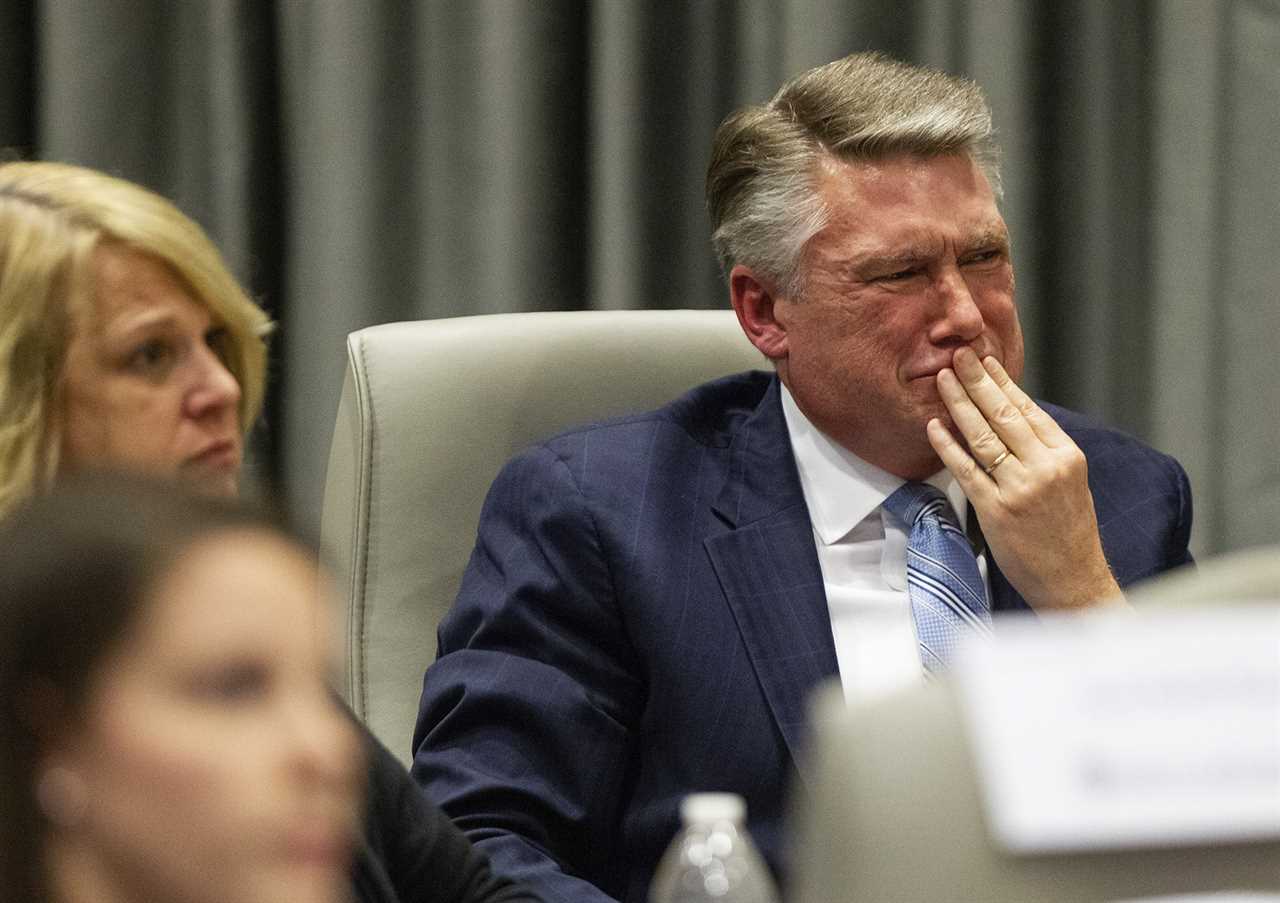
On April 6, 2017, Mark Harris swung open the door to Ray’s Furniture Liquidators, a discount furniture store in a small town in eastern North Carolina, ready to meet the man who he hoped could help him win a seat in Congress.
A year earlier, Harris had lost the 2016 Republican primary for North Carolina’s 9th Congressional District by a mere 134 votes. A handful of absentee votes in Bladen County had made all the difference.
Now a powerful judge had arranged the furniture store meeting with three local Republican power players — a Realtor whose family founded the famous hamburger joint in town, the county GOP chair and the county commissioner who owned the furniture store, Ray Britt. They wanted to introduce Harris to the person who steered those handful of absentee ballots, McCrae Dowless.
Harris and Dowless bonded quickly. Dowless couldn’t even wait until the next morning to call Harris to follow up on the meeting. That night he called Harris at 11:25 p.m. The two talked for seven minutes and 20 seconds. Over the next 18 months, they’d contact each other hundreds of times, according to phone records we obtained during the course of our reporting. And those conversations would result in a congressional election being overturned because of election fraud, the only time that’s happened in modern U.S. history, with Harris giving up a seat in Congress he believed he’d won on election night.
All of this happened long before this past tumultuous year, during which Donald Trump and his followers have alleged vast conspiracies of fraud to cast doubt on Joe Biden’s election as president. The consequences have been dire: from the riot of Jan. 6 that nearly stymied the certification of Biden’s victory to the widespread and wholly unsupported belief by large segments of the electorate that the election was stolen.
None of those allegations have been substantiated. Multiple court cases and recounts and audits have disproven the claims of absentee ballot manipulation in multiple states involving hundreds, even thousands of alleged conspirators.
But fraud involving absentee ballots is a real thing. It just looks nothing like the lurid tales spun by people like Rudy Giuliani and Sidney Powell. The story of what happened in the race for North Carolina’s 9th District shows just how rare and also how basic and local election fraud really is. What happened in Bladen County in 2018 wasn’t carried out by sophisticated computers from a foreign land, but by low-level operatives with handwritten lists and spreadsheets in a forgotten stretch of eastern North Carolina where the median household income is $32,000 a year, where the most prominent employer is a hog-slaughtering plant and where folks were desperate enough to knock on doors and ask for people’s votes for candidates they didn’t know.
From the beginning, Mark Harris couldn’t get enough of the relationship with Dowless.
Dowless, a man in his mid-60s who only recently quit a several-packs-of-Newports-a-day habit, is easy to like. He carries himself like a humble Bladen County tour guide. Understated, soft-spoken, aware of every turn in the road. If you didn’t know about his past — he was convicted of insurance fraud in the early 1990s, and had been the subject of a 2016 state board of elections investigation into election fraud — you might think his plan for boosting Republican votes was fool-proof. And lawful.
Harris woke up the next morning still turning their first date over in his head. The Baptist preacher had heard the speculation of foul play in eastern North Carolina elections, sure. To this day he swears that the last thing he’d want to do is sign on with someone who was breaking the law. The morning after the meeting, he called a trusted advisor, his son John, a lawyer who worked in the U.S. Attorney’s office, to talk about it. John was on his way to work in Raleigh.
An idealist with a straight jaw and classic haircut, John wouldn’t know how to get in trouble if he was dropped into a bucket of it. As a high schooler at the century-old McCallie School in Tennessee, he was president of the student senate, an honor council designed to regulate truth and fairness among students. He was also president of the Young Republicans. From there, he went to UNC and Duke as a Robertson Scholar.
It was John who first thought his father had a shot to win the 9th District. When the congressional maps were redrawn before the 2016 primary, John saw a district that was more rural and less affluent, and those were the kinds of folks his dad connected with. The new 9th was set up nicely for a pastor who in 2010 led a campaign to ban same-sex marriage that rural, conservative voters overwhelmingly favored. The incumbent, Robert Pittenger, had few friends in the rural reaches of the district. He lived in the district’s wealthier western end, in a 13,898-square-foot mansion valued at $7 million — not exactly a lifestyle familiar to the majority of voters in Bladen County.
John Harris had been a law clerk in Washington during that 2016 campaign. He wasn’t involved day to day in his father’s run but he supported from afar by analyzing data and giving his parents advice.
On the night of the June 2016 primary, as Mark Harris conceded victory to Pittenger, John clicked through the results: Out of 26,606 cast his dad had lost by a margin of one half of 1 percent. It was late, 11 p.m., when he shot both of his parents an email: “I mentioned by text that things looked strange coming out of Bladen County. I’ve taken another look, and can confirm that the absentee by mail votes look very strange.”

The results were close enough that Harris and his campaign team considered calling for a recount. Any wrongdoing they could find, they figured, would only bolster their argument. In his email, John Harris highlighted the wild mail-in ballot numbers in Bladen, which ran completely counter to the overall results:
• 221 votes for Todd Johnson, who finished third overall in the district
• 4 votes for Mark Harris, who nearly won the election
• 1 (one) vote for Robert Pittenger, the sitting congressman
“The irregularity suggests perhaps there is a more systemic error, and given that you outperformed Pittenger in both early voting and on Election Day in Bladen County, it may be worth investigating,” John went on in his email. “This smacks of something gone awry.”
John had a hunch that the man behind the margin, McCrae Dowless, had helped Johnson amass all those votes by collecting absentee ballots and bringing them to the board of elections. That would be a crime. Still, in a move that was either polite or weak or both, the Harris campaign didn’t mount a challenge and Pittenger won reelection easily in November.
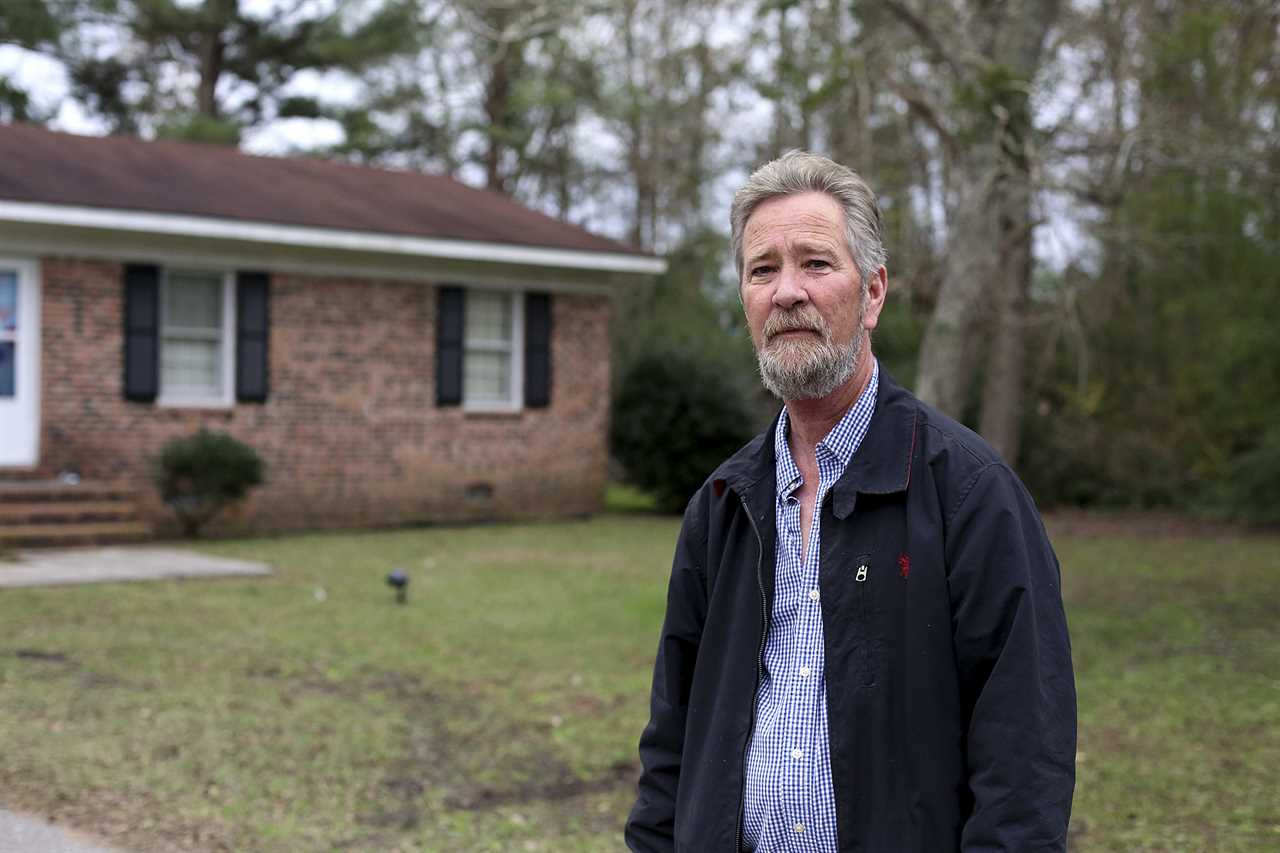
Now in the spring of 2017, a more motivated Mark Harris considered a second challenge. And this time he meant to hire the same Bladen County operative who had appeared to be the secret weapon in his defeat.
That morning after the meeting at Ray Britt’s furniture store, Mark Harris walked John through what Dowless had told him about his two-step process. How Dowless sent workers to collect the absentee ballot request forms, which is legal, but not the absentee ballots themselves, which is illegal. How Dowless sent a team of two people to witness absentee ballots but not collect them, which is legal so long as both people who sign as witnesses actually watched the voter cast their ballot. How Dowless swore to him he wouldn’t take a 90-year-old woman’s ballot to the mailbox even if she asked. Based on Dowless’s presentation the day before, the elder Harris said, the operation seemed to be legal.
John didn’t believe it.
He tried to convince his father to stay away. Their conversation stretched on through John’s 20-minute drive into downtown Raleigh, as he sat in his car in the parking garage and as he walked across the street and sat on a bench outside of his office. John told his dad that Dowless was a convicted felon. The young man who was president of his high school honors council said he worried Dowless would do something illegal. And even if he didn’t, he still might do something that would stain the victory.
“You better believe that Robert Pittenger, if it’s a close race, he’s going to send everything after you to determine, you know, whether or not anything had gone on,” John told his dad.

John, by now pacing outside his office, said he had to go to work. But the conversation continued via email. The first note from John simply quoted the North Carolina statute that made it a felony to collect someone’s absentee ballot.
Mark responded a half hour later. “So you found no problem in handling ‘request forms?’ I am certain they have them mailed in then!”
John replied right away in an email that began with a cold admonition: “This is not legal advice.” It was as though he was talking to a would-be client whose case he knew was bad, a case he didn’t want to take. It was also as if he knew that one day his emails would be made public.
“The key thing that I am fairly certain they do that is illegal is that they collect the completed absentee ballots and mail them at once,” John wrote. “The way they pop up in batches at the board of elections makes me believe that. But if they simply leave the ballot with the voter and say be sure to mail this in, then that’s not illegal.”
Mark’s response to his scholar son’s well-reasoned, well-researched advice was hypothetical. “Mom brought up a good point,” Mark wrote, speaking of his wife, Beth. “Maybe they just go with the person to their personal mailbox and put it in, and raise the flag for the mailman to pick up. Since the ballot is already sealed and signed over the seal, they don’t pick them up, to my understanding, but rather encourage them to mail it that day by putting it in their mailbox and raising the flag.”
John, in disbelief, flung back one last reply. “Good test is if you’re comfortable with the full process he uses being broadcast on the news.”
Mark Harris didn’t respond. His answer came two weeks later when he started writing checks to Dowless to secure his services for the 2018 election.
On May 8, 2018, a year and change after the first meeting between Harris and Dowless, the primary election day broke sunny with temperatures in the upper 70s. A great day for people to show up to the polls. That is, if they hadn’t already voted.
By then, Dowless had introduced Harris to everyone he could find in Bladen County. He’d taken the candidate to the Beast Fest, Bladen’s fall festival named in honor of a mythical predator from the 1950s that supposedly was killing people’s pets, and to the peanut festival. Mark had eaten muscadine slushies and collard sandwiches, hyper-local delicacies, in his efforts to connect with the rural voters.
Harris and his campaign were on their way to paying Dowless about $130,000 to work three counties — Bladen, Robeson and Cumberland — over the course of the 2018 election. Dowless used the cash on various campaign expenses, including payments to workers on the ground. Dowless could have worked for Pittenger but he told us he liked Harris more, and he paid better. “I knew Pittenger wouldn’t have paid that much,” Dowless told us. “He’d have said $3,000 or $4,000. You can’t do three damn counties for $3,000 or $4,000. You can’t do it. And I said, ‘Hey, I’m not gonna do it.’”
His playbook was as it ever was. Dowless sent a small army of people to knock on doors, convince people to fill out an absentee ballot request form, and then follow up after the ballots arrived to make sure they actually voted. The workers drove down dirt roads and knocked on doors, not out of a love of politics or a sense of civic engagement. They did it for the cash. Dowless paid roughly $200 per stack of request forms.
By 2018, the opioid crisis was part of the fabric of Bladen County. The rate of unintentional deaths due to drugs was about 29 percent higher than anywhere else in North Carolina. Dowless and many of his non-user friends have a name for these addicts. Hearkening back to the days when people who worked in cotton mills were called “lintheads,” he calls them “pillheads.” People like that were looking for quick work for cash, and Dowless had stacks of it.
He was willing to hire them, but he gave them no leeway: payment upon receipt of the ballot request forms. No exceptions. “These people, if you don’t pay them to do something,” Dowless told us, “if you pay them an hourly rate, they’ll go sit under a tree.”
So these “pillheads,” as Dowless called them, collected the request forms and brought them back to him. They would either return them to his house, where he’d look them over sitting in his swivel chair at his kitchen table, or to his office a few miles away, where he’d hold court from a different swivel chair behind an old desk with a full ashtray.
He’d look over the forms, then put the initials of the person who collected it in the top right corner. That way, if the board of elections had any questions about the ballot request form, he knew which worker to call. He made a copy of each form before turning it in. This way, he’d have the voters’ information when the actual ballots went out, and he could send workers back to their houses to make sure they voted.
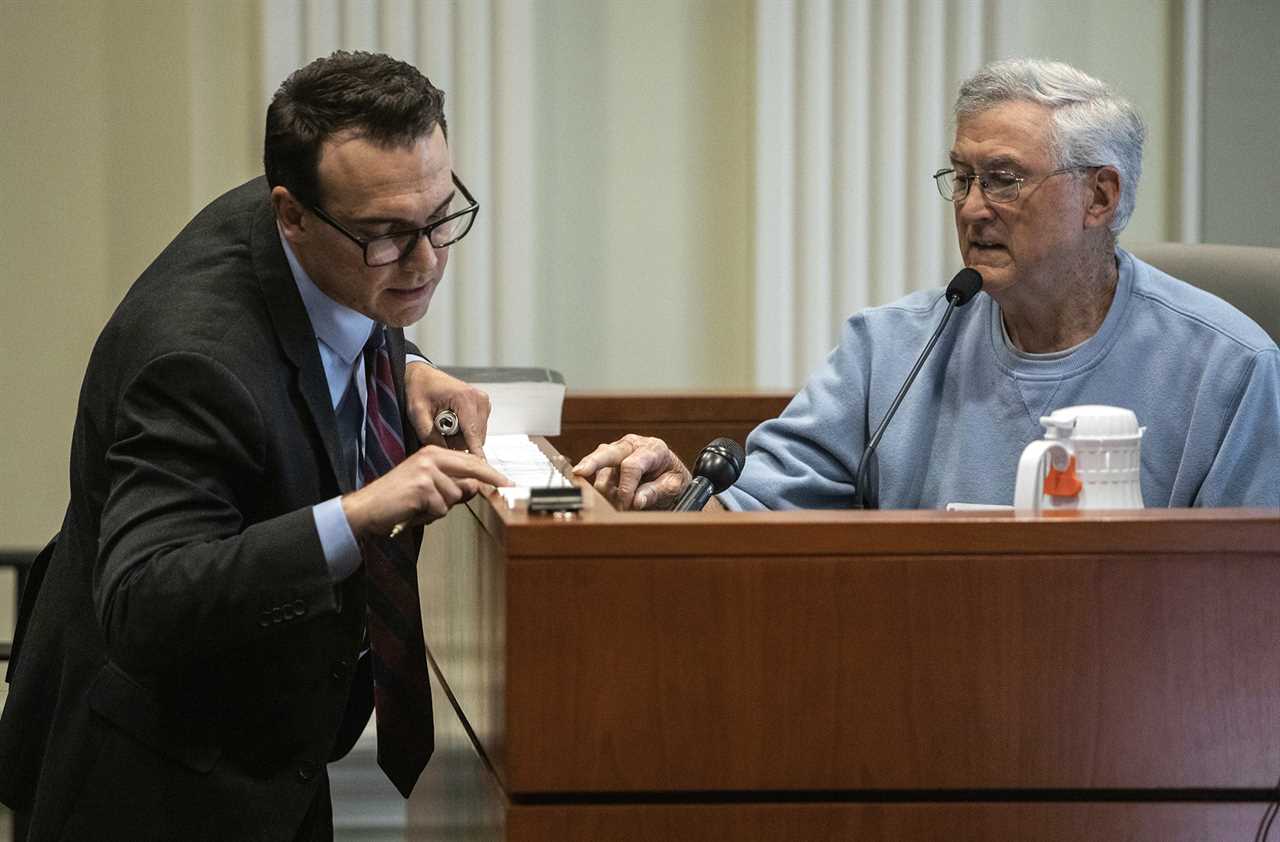
Bladen County saw 647 absentee ballots cast in the 2018 primary. Dowless couldn’t claim credit for all of them, but many came from people in and around Bladenboro, near his house. These were votes from people he knew, and people he was certain would bubble in the circle he wanted them to bubble. There wasn’t any single way folks knew who Dowless wanted them to vote for. It was a combination of techniques: who he talked about when he was hanging around the convenience store and the local barbecue restaurant; who he put campaign signs out for; whose sticker was on the back of his car.
The primary ended with Harris taking the Republican nomination that had eluded him two years earlier. In Bladen County, he won nearly 70 percent of the votes overall. And in absentees, the number was staggering: Harris received 437 absentee votes; Pittenger got 17. It’s a difference of 420. But if you take into account that had Dowless been working for Pittenger, nearly all of them would’ve gone to the incumbent, it was an 840-vote flip.
Harris’s overall margin, after all the votes in the 9th District were counted from Charlotte to Bladenboro, was 828 votes. Bladen County was the difference. And once again McCrae Dowless was the difference in Bladen County.
The general-election ballot harvest season runs along the same timeline as beans in eastern North Carolina. Planting starts in late July but mostly in August and early September, in order to have a crop by the first frost in early November.
In early August 2018, a woman working for the Bladen County Improvement Association PAC, a Democratic-leaning group that works to get out the vote for candidates most of whom are Black, dropped off 184 request forms at the county board of elections. This, perhaps more than any other event, marked the unofficial start of the 2018 general election between Mark Harris and Dan McCready, a Democrat and Marine Corps veteran who had the support of some of the wealthiest left-leaning donors in the district, as well as the national Democratic Party.
A few weeks later, on Aug. 22, another big batch of ballot request forms showed up, filled out and signed, more than 100 in all. Dowless’s signature is hard to miss: a big ‘M,’ then an underlined small ‘c,’ then the uppercase ‘C,’ followed by some squiggles. Then a big, loopy ‘D,’ followed by an ‘o,’ and one clear cursive ‘l’ that gives way to more squiggles. That signature was next to a line declaring those 128 ballot request forms had been dropped off. The first seeds of the 2018 general election harvest were planted, and the rains from Hurricane Florence were on their way.
In mid-October, weeks after Florence struck, eastern North Carolina was still in shambles, with people’s moldy belongings piled up on the country roads. But Dowless kept working. He prepared another list of folks who’d requested absentee ballots. It was time to make sure they voted. Now he needed the same workers to go out and nudge people. Or, if needed, maybe something a little more than a nudge.
As Election Day and that first frost grew near, farmers rushed to harvest the last of the bean crops, and the vote collectors did the same.
Meanwhile, investigators and attorneys with the state board of elections were watching closely. They’d grown increasingly impatient since they sent to the U.S. Attorney’s office a 300-page report about the 2016 shenanigans in the district. The report included details not only of Dowless’s operation, but also his rivals at the Bladen County Improvement Association. But the U.S. attorney, Robert Higdon, did nothing with the file, instead focusing his attention on a handful of immigrants he thought were voting illegally. Most of those immigrants wound up having the proper paperwork.
So in the fall of 2018, the state board’s investigators continued to do the work the Justice Department hadn’t done. On Oct. 3, they went to the Bladen elections board office to inquire about the high number of absentee ballots that were pouring in. There they met Valeria McKoy, a Black woman and the deputy director, and asked if she’d noticed anything strange.
Yes, McKoy told the investigators, she’d noticed that several of the containers were signed by the same name. Actually, a lot of the containers were signed by the same names. The investigators asked to see the ballot request forms in question, but McKoy hesitated. “You’re getting me in trouble,” she said quietly, then turned away to go get them, according to the investigators’ report.
Dowless was by now convinced his candidate would win. Never more so than the afternoon he saw a new mailer for McCready. Most people would see an image that couldn’t be more wholesome: a young man with his pregnant wife and three young kids — a girl and two boys — and two curly-haired labradoodles, one white and one black, all looking at the camera. The only thing you could fault them for was being perfect.
That was the problem. Dowless pulled his phone from his breast pocket and called Harris.
“Mark, we got that McCready mailer down here in Bladen today,” he said. “That dog’s been to a groomer. That ain’t gonna fly in Bladen County. You’re gonna win.”
Late on election night, Dowless was steadily on his phone, calling friends and other people interested in small-town politics, crunching the data, while Mark Harris and his campaign partied at a country club in Monroe, about 120 miles west.
The congressional contest wasn’t even close in Bladen, with Harris collecting 5,413 votes to McCready’s 3,856. Of those who voted for Harris, 420 were by absentee ballot. That was a pretty healthy return on the 572 request forms Dowless’s team planted and picked up earlier in the election season.
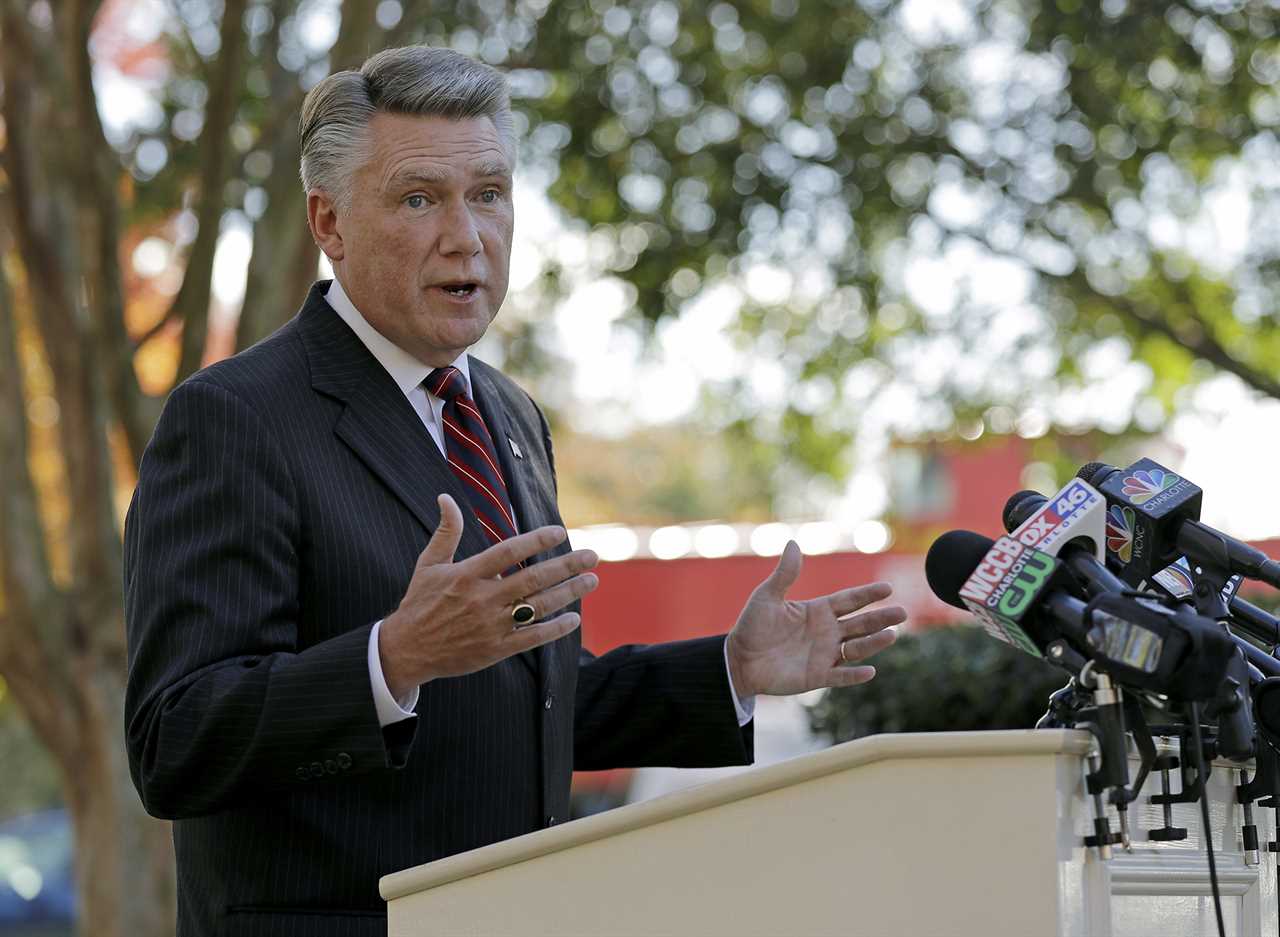
Just before midnight, former Arkansas governor Mike Huckabee sent a video message that was played on the big screen at the Harris rally. “I can’t wait for you to represent all of us,” Huckabee said, as it looked more and more like Harris would win.
The crowd started chanting, “MARK, MARK, MARK,” and soon Mark Harris walked out to greet his supporters wearing the uniform of a Republican member of Congress: dark navy suit, white shirt and red-and-blue striped tie. His white hair was, as always, neatly shaped, with a stark part on the left side. An American flag pin was on his right lapel.
Nearly 280,000 people cast votes throughout the district that year, and Harris was on his way to what would eventually be called a 905-vote edge. Less than half a percent — roughly the same margin by which he had lost to Pittenger some two years before. While Dowless sat at home with a satisfied smoke, and while Dan McCready stayed in a Charlotte Marriott room with his campaign team instead of talking to his supporters, Harris took the stage next to his wife, Beth, in front of a blue and white backdrop that read “MarkHarrisForCongress.com” to claim victory.
Harris looked back and forth across the room, his voice projecting excitement. He held a microphone in his left hand, and with his right, he waved and pointed his index finger to emphasize his points, as if he were giving a Sunday sermon.
As he looked into the crowd, the previous 19 months flashed before him. He knew which places had propelled him to victory. He believed that the meeting at the furniture store, the hundreds of calls and texts to McCrae Dowless, the Beast Fest and the peanut festival, the muscadine slushies and the collard sandwiches, they were all wrapped up in those 900 or so votes that separated him from McCready. They were the reason this room at the country club was full and McCready’s room at the Marriott was empty.
As he continued with his victory speech, the pastor with the good hair made sure to mention the places that made the difference and to praise the Lord for them.
“And I have to say, as I look at that map tonight,” Harris said, “thank God for Bladen and Union counties!”
Meanwhile, across the state, Dowless was sitting at his kitchen table chain-smoking and calling people to ask if they’d seen what he’d done. He’d not only licked a sitting congressman in the primary that spring, now he’d done it again to the rich Democrat and his longtime Bladen Improvement PAC rivals in the general. On top of that, he did it for someone he genuinely liked in Harris.
At 2:04 in the morning, Dowless sent Harris a text. They exchanged several messages over the next few minutes.
Dowless called Harris again at 3:49 a.m., and Harris answered. They talked for about two minutes. Dowless had a suggestion: Maybe Harris should come to Bladen County for a celebration? Dowless would organize something.
“I have to go to Washington,” Harris said, laughing. New-member orientation for the 116th Congress was the following week.
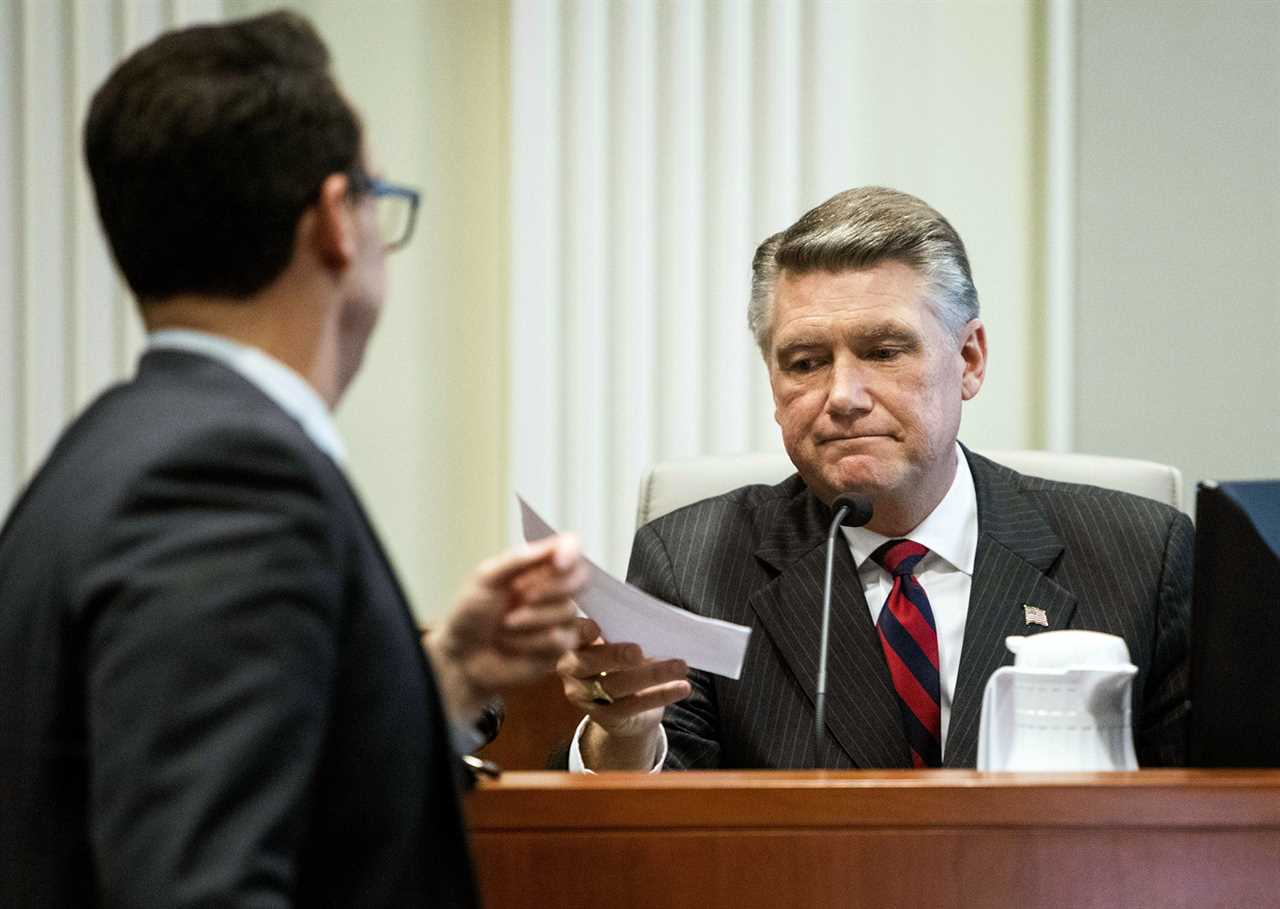
Maybe it was the feeling of not being in the room. Maybe it was his excitement. Maybe it was just his chatty nature. Whatever the case, Dowless called Harris four more times: 3:52 a.m., twice in a row at 4:33 a.m. and again at 5:51 a.m.
Each of those went unanswered. Then, with less than an hour before sunrise, he finally went to sleep.
A few weeks later, on Nov. 27, 2018, the state board of elections met to certify the results of all the contests in the state. It was a ho-hum meeting with little coverage. But then Vice Chair Josh Malcolm, a Democrat from Robeson County, Bladen’s neighbor, spoke up.
“So, um,” he cleared his throat, “It’s my request that the 9th Congressional District, to be clear, the 9th Congressional District, will not be part of this motion.”
“I’m very familiar with unfortunate activities that have been happening down in my part of the state,” Malcolm said. “And I am not going to turn a blind eye to what took place …”
Hours later, five Democrats and four Republicans returned from a closed session and voted unanimously to certify the election results throughout the state with a fairly big exception: the 9th District.
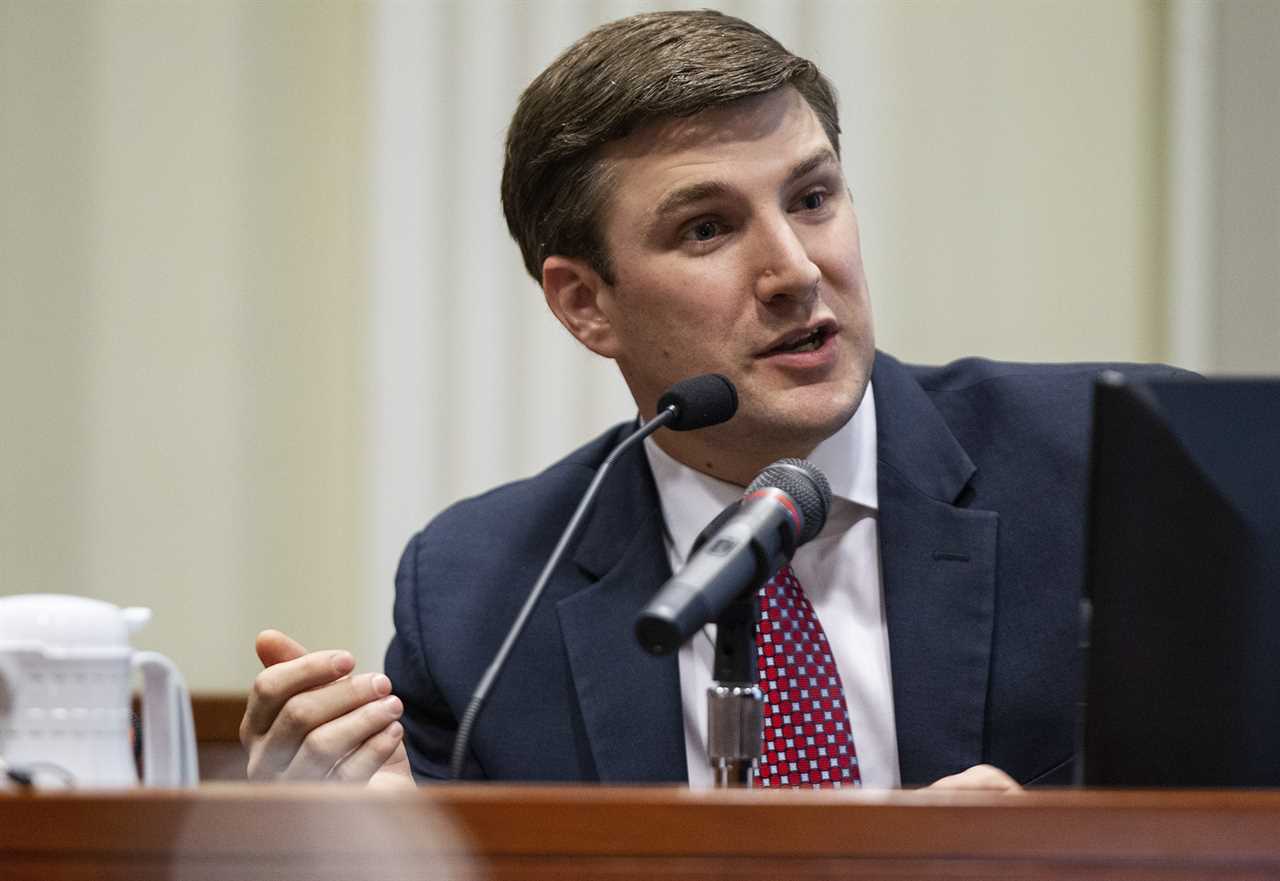
As national media rented cars to descend on Bladen County that December, McCrae Dowless and Mark Harris were painted as the faces of election fraud in America. They both still deny any wrongdoing. But eventually, the state board of elections set a February 2019 date for an evidentiary hearing into fraud in the 9th District.
Dowless declined to take the stand. Harris held firm in his denial that he knew anything improper was going on with Dowless’s operation. But the state board of elections had a star witness who was willing to say he had, in fact, been warned: Harris’s own son.
While his father wept in the audience, John Harris told the story of how he’d warned Mark about Dowless’s operation. Not only that, John produced the emails, which Mark’s own lawyers had kept from the board’s investigators.
The next day, Mark Harris said he believed there should be a new election. The crowd gasped. Harris quickly left the stand and avoided a reporters’ questions as he got in a vehicle to be carried away.
A few days later, Harris’s phone rang with a number he didn’t recognize. The caller left a voicemail. When Harris checked it, he heard the voice of his opponent, Dan McCready. The Democrat wanted to know if Harris was going to run again in the special election.
Harris did not run. McCready did.
In May 2019, Dan Bishop, a Republican who leans much farther right than Mark Harris and who who would later support the “big lie” in the 2020 election of Donald Trump, won the GOP nomination for the 9th Congressional District special election.
That summer, Bishop would stand on stage in eastern North Carolina with Trump. It was the same night supporters chanted “send her back,” referring to Minnesota Rep. Ilhan Omar, a U.S. citizen who was born in Somalia.
The election was set for September 2019, some 28 months after McCready first announced his candidacy. That night, McCready’s supporters again gathered in a Charlotte hotel, expecting victory. But the evening ended with Bishop standing on stage smiling, taking a call from Trump during his victory speech and putting the president on speakerphone for the room to hear. Bishop had won by nearly 4,000 votes out of 188,000 cast — a margin much larger than the number of absentee ballots from Bladen County.
Meanwhile, Dowless, who maintains his innocence as he awaits trial in August 2022 on election fraud charges, sat at home while Bishop celebrated, calling friends to see if they had any numbers or stats from the first election he hadn’t worked in decades.
----------------------------------------
By: Michael Graff and Nick Ochsner
Title: ‘This Smacks of Something Gone Awry’: A True Tale of Absentee Vote Fraud
Sourced From: www.politico.com/news/magazine/2021/11/29/true-tale-absentee-voter-fraud-north-carolina-523238
Published Date: Mon, 29 Nov 2021 04:30:07 EST






